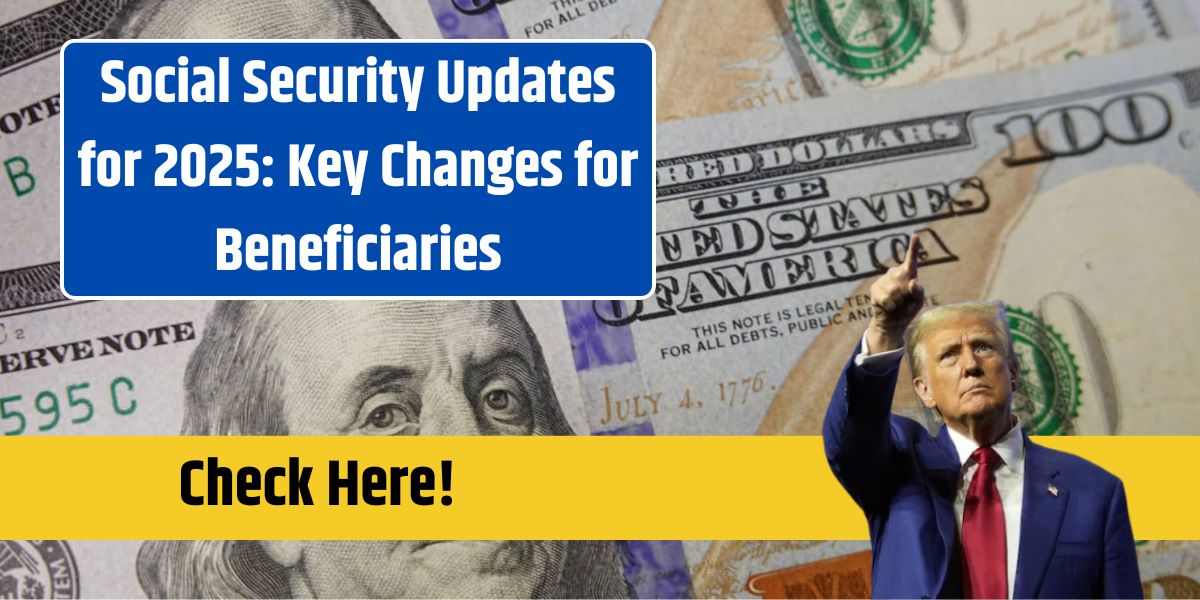The House of Representatives has taken a major step toward increasing Social Security benefits for millions of Americans by passing the Social Security Fairness Act. This legislation repeals two controversial provisions—the Windfall Elimination Provision (WEP) and the Government Pension Offset (GPO)—that have historically reduced or eliminated Social Security benefits for public sector employees and their spouses who also receive pensions. If the Senate approves the bill and it is signed into law, these changes will significantly impact retirees starting in December 2023.
Here’s a breakdown of what this legislation means, who is affected, and the broader implications for Social Security.
What Is the Social Security Fairness Act?
The Social Security Fairness Act eliminates the WEP and GPO provisions that have restricted Social Security benefits for many public sector workers and their spouses.
Understanding the WEP
- The Windfall Elimination Provision (WEP) reduces Social Security benefits for individuals who receive a pension from non-Social Security-covered employment, such as state and local government jobs.
- WEP primarily affects workers with fewer than 30 years of significant earnings from Social Security-covered employment.
Understanding the GPO
- The Government Pension Offset (GPO) reduces spousal or survivor benefits for individuals whose spouses receive non-covered pensions.
- The reduction is calculated as two-thirds of the pension amount, significantly impacting widows, widowers, and spouses of retirees.
These provisions have historically impacted over 3 million Americans, including teachers, police officers, firefighters, and their families.
Key Changes Under the Fairness Act
- Full Social Security Benefits Restored
- Affected individuals will no longer have their benefits reduced or eliminated by WEP and GPO.
- This change ensures fair treatment for retirees with both Social Security-covered and non-covered earnings.
- Implementation Timeline
- The changes will apply to all Social Security benefits processed beginning in December 2023, provided the Senate passes the bill and the President signs it into law.
- Projected Costs
- The legislation is estimated to cost $196 billion over the next decade, raising concerns about Social Security’s long-term financial sustainability.
Challenges and Opposition
While the bill has strong bipartisan support—passing the House with a vote of 325 to 75—it faces challenges in the Senate.
Financial Concerns
- The Social Security trust fund is projected to be depleted by 2035, potentially leading to reduced benefit payments. Critics argue that the Fairness Act could hasten insolvency, making it difficult for Social Security to maintain full benefit payouts.
- Representative Jodey Arrington (R-Texas) expressed concerns, emphasizing the need for fiscal responsibility to safeguard retirees nationwide.
Legislative Hurdles
- Despite strong House support, the bill’s high projected cost may create roadblocks in the Senate.
- The Senate’s decision to prioritize the bill will determine its fate, with supporters hopeful that bipartisan backing will lead to its passage.
Americans’ Concerns About Social Security’s Future
A recent Bankrate survey highlights widespread concern about Social Security’s long-term viability.
Key Findings
- 71% of retirees and 73% of non-retirees worry about receiving full benefits if the trust fund is depleted.
- Concerns are especially pronounced among:
- Working Baby Boomers: 81% fear losing benefits.
- Gen Xers: 82% share the same concern.
- Gen Z and Millennials: 69% and 62%, respectively, are also worried.
Social Security’s Role
- Over 72.5 million Americans rely on monthly Social Security payments, including retirees and Supplemental Security Income recipients.
- Trust funds play a critical role in supplementing these payments, underscoring the importance of maintaining financial stability within the system.
Implications for Beneficiaries
If the Social Security Fairness Act becomes law, millions of Americans will see increased benefits, particularly:
- Public Sector Workers: Teachers, police officers, and firefighters previously affected by WEP and GPO will receive full benefits.
- Spouses and Survivors: Spouses and widows/widowers will no longer face GPO-related reductions.
However, these changes also raise questions about Social Security’s financial future, emphasizing the need for long-term solutions to ensure the program’s sustainability.
FAQ:
1. What is the current status of the Social Security Fairness Act?
The bill has passed the House and is awaiting Senate approval. If the Senate passes it and the President signs it, the changes will take effect in December 2023.
2. How will the repeal of WEP and GPO affect retirees?
Retirees impacted by WEP and GPO will see their Social Security benefits fully restored, potentially increasing monthly payments significantly.
3. Will the Fairness Act impact Social Security’s solvency?
Critics argue that the $196 billion cost over 10 years could accelerate trust fund depletion, projected to occur by 2035.
4. Who is most affected by WEP and GPO?
Public sector workers, such as teachers, police officers, and firefighters, as well as their spouses and survivors, are the primary groups affected.
5. How can I check if WEP or GPO affects my benefits?
You can review your Social Security statement or contact the SSA directly to determine if these provisions apply to you.





















